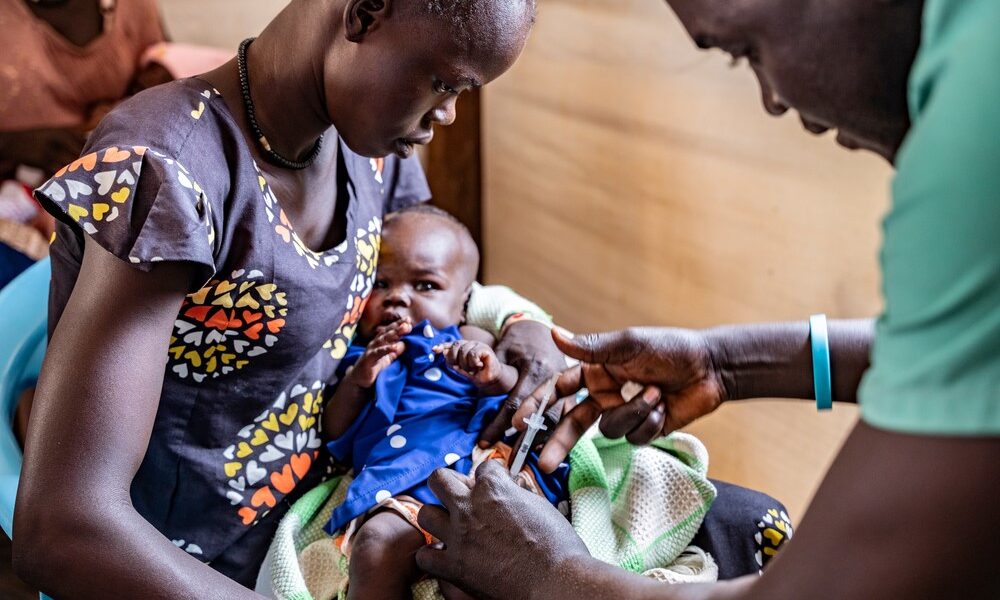By Philip Buda Ladu
The fight against malaria has achieved significant success in Twic County, Warrap State through a combination of mass drug administration (MDA) and vaccination.
Malaria remains a major public health threat in South Sudan, affecting mostly vulnerable children.
Factors such as poverty, displacement, and a fragile health system exacerbate the problem.
In an effort to address this, Médecins Sans Frontières/Doctors without Borders (MSF) has implemented seven rounds of MDA between May 2023 and October 2024, targeting children aged 3 months to 15 years.
The intervention, which included administering preventive drugs and supporting the Ministry of Health in rolling out the R21 malaria vaccine, has led to a substantial reduction in cases and severe illnesses.
As a result of these efforts, a record of significant decrease in malaria positivity rates in integrated case management community sites. The positivity rate dropped from 79% in 2022 to 70% in 2024.
“When the MDA started, I took my five children and got the drugs to prevent malaria. None of them got sick,” says Adior Manut, a resident of Turalei internally displaced people’s camp in Mayen Abun.
According to MSF, its teams administered preventive malaria drugs to over 18,700 children aged three months to 15 years during the seven rounds of MDA campaigns.
Additionally, the medical charity supported the Ministry of Health in vaccinating children aged five to 24 months against malaria.
“If we compare before and after MSF started bringing malaria drugs, there is a big difference,” says Arual Manyok, another resident of Mayen Abun. “All the children who received the drugs have never had malaria again.”
Dr. Mohamed Bashir, MSF’s project medical reference in Twic County, emphasized the importance of proactive prevention interventions.
“The decrease in malaria cases and severe admissions in 2024 clearly shows that malaria preventive measures like MDA prevention rounds or the malaria vaccine response by the MoH can effectively provide protection and interrupt the disease cycle in our target pediatric population.”
MSF emphasized the importance of community involvement in the success of these interventions. By working closely with local leaders and volunteers, MSF was able to raise awareness and ensure that the most vulnerable children received the necessary preventive measures.
Despite these achievements, MSF warns that lack of preparedness remains a significant challenge in many parts of South Sudan. Recurrent malaria outbreaks continue to strain health facilities and lead to an increase in severe cases.
“Health organizations should invest in more robust prevention and emergency response,” Dr. Bashir urged. “The success we’ve seen in Mayen Abun shows that malaria is preventable with the right tools.”
MSF calls on health organizations to invest in robust malaria prevention and emergency response strategies to address the ongoing threat of the disease in South Sudan.




